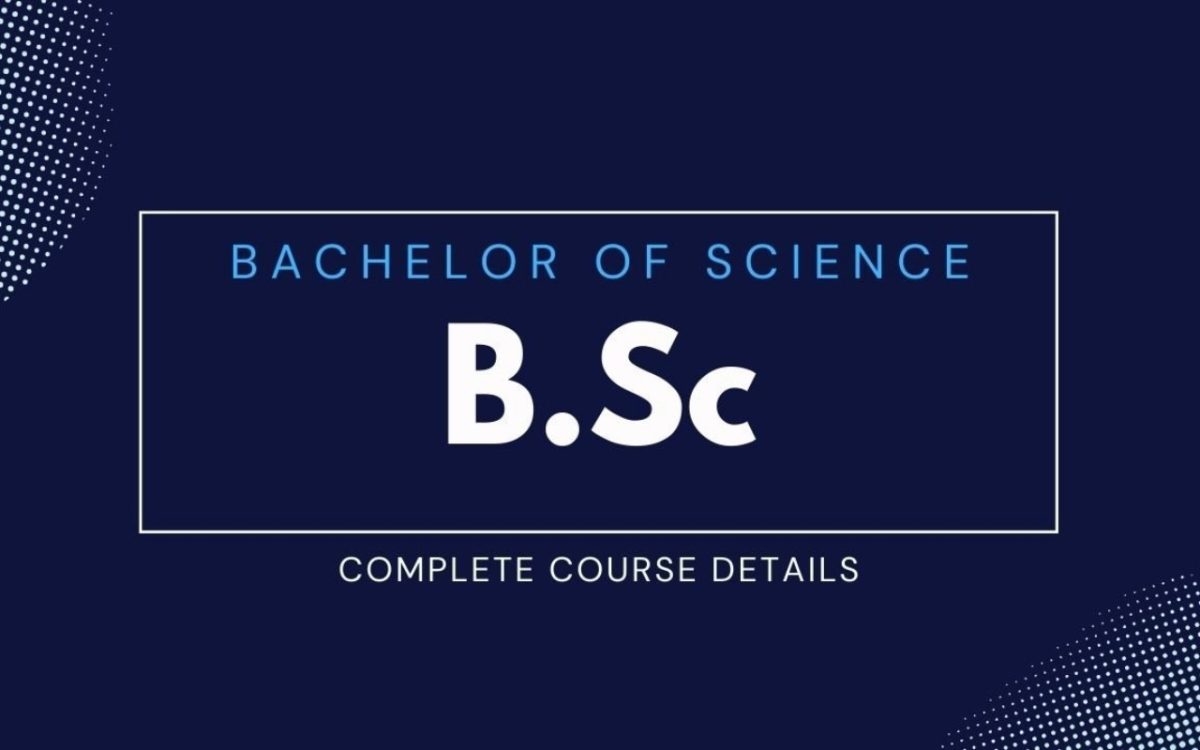Science is a vast and ever-expanding field, offering a multitude of career opportunities. But here’s the question: with so many options, how do you make a choice? This is where specializations in science play a crucial role. By focusing on specific areas, scientists can hone their skills, become experts, and carve out a niche for themselves in the competitive world of science.
In this article, we will explore how specializations in science shape career opportunities, with a special focus on how a BSc (Bachelor of Science) degree helps in opening doors for various career paths.
The Power of Specializations in Science
In a broad sense, science encompasses everything from physics to biology, chemistry to engineering, and more. While this diversity offers endless opportunities, it can also be overwhelming. Specializations allow individuals to focus on a specific area within these broader fields. By diving deep into a chosen topic, you gain specialized knowledge that sets you apart from others.
Think of it like this: If you try to learn everything, you’ll know a little about a lot of things. But when you specialize, you become a master in one area. Specializations in science work in a similar way. Whether you’re interested in molecular biology, environmental science, or data analytics, specializing allows you to refine your skills and pursue careers that require focused expertise.
The Role of a BSc Full Form in Shaping Career Opportunities
A BSc Full Form refers to a Bachelor of Science degree, which is often the first step towards choosing a career path in science. Many students initially choose a broad science discipline for their undergraduate degree. But as they advance through their studies, they often narrow down their focus to specific areas of interest, such as genetics, physics, or environmental science.
This shift is important because it gives students the tools they need to pursue a specialized career. For example, a BSc in Biotechnology prepares students to work in cutting-edge fields like genetic engineering or medical research. A BSc in Environmental Science could lead to roles in conservation, environmental policy, or sustainability. In these cases, the specialization allows graduates to step directly into roles that align with their interests and strengths.
Building Expertise
The value of specializations lies in the depth of knowledge they offer. A BSc in physics, for instance, equips you with a solid foundation in the principles of matter and energy. But, if you specialize in a subfield like quantum physics or astrophysics, you’ll be ready to tackle complex problems that require a higher level of expertise.
Specializing doesn’t just improve your knowledge base—it also refines your skillset. By focusing on one area, you become more adept at problem-solving within that domain. Whether you’re conducting experiments, analyzing data, or working with specialized equipment, your specialized knowledge will make you a valuable asset in any team or research project.
Career Paths for Science Graduates
So, what career opportunities exist for science graduates, especially those who have specialized during their education?
- Research and Development: One of the most common paths for those with a BSc degree is to work in research and development (R&D). Specializing in a particular field, such as microbiology or chemical engineering, makes you an ideal candidate for these roles. Many industries, from pharmaceuticals to tech, rely on R&D to drive innovation. Specializing in science makes you a valuable resource for advancing new products, technologies, or solutions.
- Healthcare and Medicine: Specialized science degrees often lead to careers in healthcare. For example, a BSc in Medical Laboratory Technology opens the door to careers as a laboratory technician, researcher, or even a specialist in clinical diagnostics. The healthcare sector is continuously evolving, and specialized knowledge is required to stay on top of the latest developments in disease treatment, diagnostics, and healthcare technologies.
- Environmental and Sustainability Careers: The push for environmental sustainability has made specializations in environmental science increasingly valuable. With a BSc in Environmental Science, graduates can pursue careers in conservation, environmental policy-making, or working with organizations that focus on sustainability practices. This could involve everything from conducting environmental impact assessments to developing green technologies or advising businesses on eco-friendly practices.
- Technology and Data Science: Technology is one of the fastest-growing fields globally, and the demand for specialized knowledge in areas like data science, artificial intelligence (AI), and machine learning continues to soar. If you specialize in a subfield like data analytics or AI during your BSc, you’ll be positioned for roles that involve programming, data modeling, or predictive analytics. With technology being at the forefront of modern economies, this is an area rich with opportunities.
- Teaching and Academia: Another career path is teaching. A specialized BSc can lead to a teaching career in secondary or postsecondary education. If you have a deep understanding of a scientific field, you could teach at the high school or university level, mentoring the next generation of scientists.
The Growing Demand for Specialized Professionals
In today’s world, being a jack-of-all-trades just doesn’t cut it anymore. Industries, especially those in science and technology, require professionals who can solve specific, complex problems. That’s where specialization comes in. Whether it’s a BSc in Biochemistry or a BSc in Environmental Technology, specialized knowledge gives you a competitive edge.
For example, think of the growing interest in sustainable energy solutions. Engineers, researchers, and technologists who specialize in renewable energy or environmental sciences are in high demand to tackle global challenges like climate change. This demand for specialized knowledge isn’t limited to a few fields—it spans nearly every industry, from aerospace to medicine.
Networking and Gaining Experience
Specializations also open up unique opportunities for networking. By focusing on a specific field, you’ll be exposed to a network of like-minded professionals, researchers, and academics. Whether through internships, conferences, or online communities, these connections can play a pivotal role in shaping your career. Moreover, gaining hands-on experience through specialized projects or lab work enhances your resume and prepares you for your chosen career.
Many employers seek candidates with both theoretical knowledge and practical experience. This is why students who choose to specialize often have better job prospects—employers know that these candidates bring both deep knowledge and real-world experience to the table.
Conclusion
To sum it up, specializations in science are vital in shaping career opportunities. A BSc Full Form degree gives students the foundational knowledge needed to pursue various scientific fields, but it’s the specialization that helps them stand out. Whether you specialize in biology, chemistry, data science, or environmental studies, you will be positioned to seize unique career opportunities that require a higher level of expertise.
The takeaway? Choose your focus carefully, develop your expertise, and watch your career soar. Science is an exciting, ever-changing field, and with the right specialization, you can ensure a bright future full of opportunities.
FAQs Related to Specializations in Science and Career Opportunities
1. What does a BSc in science mean?
A BSc, or Bachelor of Science, is an undergraduate degree that provides students with foundational knowledge in science subjects. It can be pursued in various fields like biology, chemistry, physics, and more.
2. How does specializing in science help my career?
Specializing allows you to gain deeper knowledge and expertise in a specific area, making you more valuable in the job market. It can lead to more career opportunities and help you stand out to employers.
3. Can I switch my specialization during my BSc?
Yes, many programs offer flexibility, allowing students to change their specialization as they progress. It’s essential to find the field that excites you and aligns with your career goals.
4. What are some high-demand specializations in science?
Some high-demand specializations include data science, environmental science, biotechnology, renewable energy, and medical research.
5. How can I gain practical experience in my specialized field?
You can gain experience through internships, research projects, part-time jobs, and by attending industry conferences or networking events in your field.




